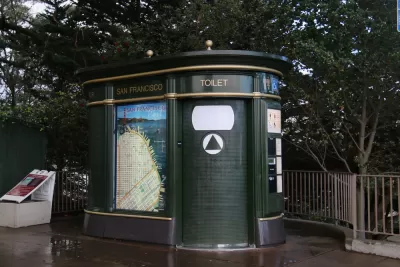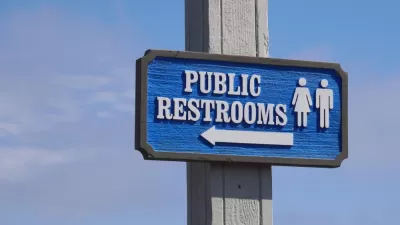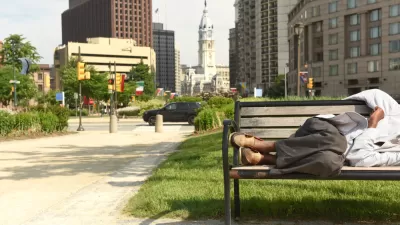San Francisco’s Pit Stop program, which provides public restroom facilities to vulnerable and unhoused residents, has helped contribute to a decline in feces-related service calls in the Tenderloin.

Adriana Rezel reports in a paywalled article for the San Francisco Chronicle: “Since 2012, San Francisco’s 311 hotline, which allows people to make requests of city service representatives, has received more than 230,000 complaints about human or animal waste in the streets. Over that period, the number of these calls has been steadily increasing in every San Francisco neighborhood, with one exception.”
That exception might surprise—it’s the Tenderloin, the neighborhood in the city most commonly associated with people experiencing homelessness and mental illness.
According to the Chronicle’s analysis, “the average neighborhood saw a nearly 400% increase in calls from 2012 to 2021, the Tenderloin actually saw a 29% decrease.” The city’s most recent Homeless Point-In-Time Count, released in August, estimated that 20,000 people will experience homelessness in the city this year—only a slight drop from 2019, and not commensurate in the decline in feces-related 311 calls in the Tenderloin. Moreover, 311 calls increased by 95 percent over the same period, according to Rezel.
So what reason could there be for the decline? “The most likely explanation is the introduction of the San Francisco Public Works department’s Pit Stop Program,” writes Rezel.
“Started in 2014, the Pit Stop Program is an initiative that offers free-to-use public toilets in select locations. With 33 locations now open in 13 neighborhoods across the city, Pit Stops are attended by paid staff during working hours and offer running water, soap and other services such as dog waste bags and boxes for needle disposal,” according to the article.
FULL STORY: Poop complaints have swelled in all San Francisco neighborhoods — except this one

Alabama: Trump Terminates Settlements for Black Communities Harmed By Raw Sewage
Trump deemed the landmark civil rights agreement “illegal DEI and environmental justice policy.”

Planetizen Federal Action Tracker
A weekly monitor of how Trump’s orders and actions are impacting planners and planning in America.

The 120 Year Old Tiny Home Villages That Sheltered San Francisco’s Earthquake Refugees
More than a century ago, San Francisco mobilized to house thousands of residents displaced by the 1906 earthquake. Could their strategy offer a model for the present?

Ken Jennings Launches Transit Web Series
The Jeopardy champ wants you to ride public transit.

BLM To Rescind Public Lands Rule
The change will downgrade conservation, once again putting federal land at risk for mining and other extractive uses.

Indy Neighborhood Group Builds Temporary Multi-Use Path
Community members, aided in part by funding from the city, repurposed a vehicle lane to create a protected bike and pedestrian path for the summer season.
Urban Design for Planners 1: Software Tools
This six-course series explores essential urban design concepts using open source software and equips planners with the tools they need to participate fully in the urban design process.
Planning for Universal Design
Learn the tools for implementing Universal Design in planning regulations.
Clanton & Associates, Inc.
Jessamine County Fiscal Court
Institute for Housing and Urban Development Studies (IHS)
City of Grandview
Harvard GSD Executive Education
Toledo-Lucas County Plan Commissions
Salt Lake City
NYU Wagner Graduate School of Public Service





























